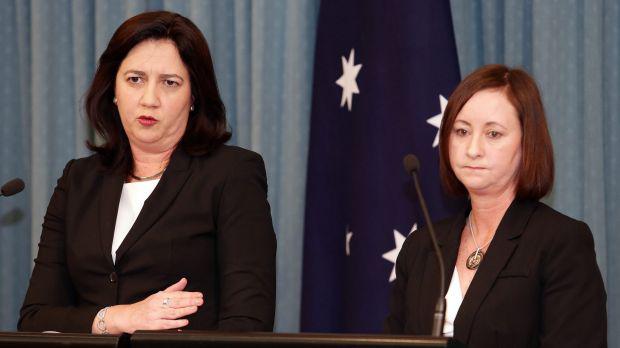|
Child sex abuse: Queensland considers reform for other victims to seek justice
By Amy Remeikis
Having taken steps to remove legal barriers stopping institutionalised child sex abuse survivors from applying to have their civil cases heard in the courts, the state government is considering broadening the reforms to encompass other victims. The removal of the statute of limitations for those who suffered sexual abuse while in state institutions opens the way for those victims to apply to the court for damages. Attorney-General Yvette D'Ath said the state would adopt a "model litigant" attitude, meaning it would not use the statute as an excuse for why a case should not go ahead before the legislation making it official is passed. In cases where it is a litigant, the government will also allow those who have previously received damages – such as in the Forde Inquiry redress scheme – to move forward with civil cases. Queensland has followed in the footsteps of New South Wales and Victoria in following the recommendation of the Royal Commission into Institutional Responses to Child Sexual Abuse and removing the statute of limitations, with the ACT government also announcing on Monday it would follow suit. But Ms D'Ath said the government was looking to go further. It was expected to release a discussion paper on Thursday, which would open for consultation broader civil litigation reforms that would extend the removal to other institutions such as families – as well as consider including serious physical and psychological abuse in the remit. That could open the litigation floodgates for victims, which under the current law could not seek redress in the civil courts unless they brought their case forward within three years of their 18th birthday. Ms D'Ath said the financial impacts, what "relationships" within those organisations should be captured and whether the reverse onus of proof – where it is up to the institutions to show what measures they put in place to adequately protect against abuse – would all be considered following on from the discussion paper. Premier Annastacia Palaszczuk, who said she would "personally" introduce the legislation to make the first changes on August 16, said it was a necessary and overdue step. "The royal commission, like the Forde Inquiry almost 20 years ago, has shone a light on the horrific treatment of some children in our institutions," she said.
"I have met personally with some of these victims, now adults, and I have personally heard their stories. These brave Queenslanders told their stories to the royal commission. They are the true survivors. "There is no time limit to the anguish or the damage done to their lives. "With this legislation, there will be no time limit for their access to justice. The statute of limitations has effectively barred these victims from actively seeking justice, barred them from making claims for damages. To date the justice system has not provided them with justice." James Farrell, the director of Community Legal Centres Queensland, said it was "sensible reform" that would "ensure that people are able to access justice, and reflects evidence that many survivors of abuse take years to take action or seek support". "Victims and survivors should not be shut out by arbitrary time limits. "As the royal commission digs deeper into the heinous acts committed against children and young people, it's important that governments implement reforms that will provide meaningful redress." But Ms D'Ath and Ms Palaszczuk said a national response was also needed for those who did not want to go through a court case. "There a lot of people out there who do not want to go through civil litigation, they do not want to go through the court's process," Ms D'Ath said. "And that is why it is important that we are not just talking about civil litigation and access to the courts to ensure justice, but we are talking about a national redress scheme, because there will be many who do not want to go through that process, and it is important that we have that redress scheme that they can turn to." The LNP released a commitment to follow through with a similar policy late last month, giving the legislation bipartisan support and aiding its progress through the Queensland hung parliament. Contact: aremeikis@fairfaxmedia.com.au
|
.
Any original material on these pages is copyright © BishopAccountability.org 2004. Reproduce freely with attribution.
